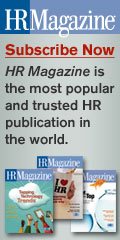HR Matters
Texas SHRM
If there have been any changes in your volunteers, report them to your Regional Administrator. Keep SHRM informed of any changes to volunteer e-mail addresses, contact information, and role changes.
Consider holding a fundraiser to benefit the SHRM Foundation—donations must be received by October 5 for your council to be recognized at the SHRM Leadership Conference.
Michele Domes: Winner
The meeting will take place at the Omni Fort Worth from 8:00 a.m. - 5:00 p.m. with our annual dinner at Joe T. Garcia's following the event. We look forward to seeing you there.
Registration is now open for the 2012 Leadership Conference! This year, our conference moves to the Gaylord National Harbor Hotel & Convention Center, just across the river from Washington D.C. and Alexandria, VA, where SHRM headquarters are located.
We are pleased to announce Cy Wakeman as our keynote speaker on Saturday! Cy is a dynamic keynote speaker advocating a revolutionary new approach to leadership. In addition, we have a great lineup of activities including the SHRM Open House, Capitol Hill visit, Conference Orientation, Membership Summit and more!
The hotel room rate is $229/night for single/double taxes. Eligible attendees may make their reservations directly with the Gaylord National Hotel by calling (301) 965-2000. Hotel accommodations will not be made through or by SHRM. Be sure to mention the SHRM Leadership Conference when making your reservation. A credit card will be required to hold the reservation, even if the attendee qualifies for complimentary accommodations. The Gaylord National accepts American Express, Carte Blanche, Diner's Club, Discover, MasterCard and Visa.
For more information about the conference, eligibility of who can attend, registration and a schedule at a glance, go to http://www.shrm.org/conferences/leadership.
Reminders: Attendees must be current SHRM members. Registration is a two-step process. Attendees are responsible for making their own hotel reservation in addition to registering for the conference.
Online university WGU Texas (http://texas.wgu.edu) has announced a new program to encourage personal and professional growth among human resources personnel in the state – the Go Further in Human Resources Scholarship.
These 15 competitive scholarships, each valued at $2,000, are designed for motivated HR personnel who wish to enhance their knowledge and career opportunities by completing their degrees with the nonprofit university.
WGU Texas is partnering with SHRM - Texas State Council to promote the program designed for active SHRM members working in an HR capacity inside the state’s businesses and healthcare organizations. "SHRM - TSC is excited about partnering with WGU Texas," said Nicole Shannon, State Director of SHRM-TSC. "This program, and the online options made possible by WGU Texas, will elevate the education level of SHRM members throughout the state of Texas."
Read more about the program here. Please also see and share the attached flyer. See the scholarship criteria here. (http://texas.wgu.edu/hrscholarship) Scholarship deadline is November 30, 2012.
More about WGU Texas:
WGU Texas is a nonprofit, online university expanding access to quality higher education for Texas residents. Established by the state of Texas through a partnership with nationally recognized Western Governors University, WGU Texas (http://texas.wgu.edu) offers more than 50 accredited undergraduate and graduate degree programs in key workforce areas including business, information technology, teacher education, and health professions including nursing.
Our innovative competency-based academic approach allows working adults to fit their education into their lives. At WGU Texas we measure learning, not seat time. All programs offer flexible online study, state-of-the art learning resources, expert faculty, and individualized mentor-guided support. WGU Texas provides a convenient, cost-effective way for self-directed, hard working adults to earn a degree and get ahead. With our affordable model, tuition is charged at a flat rate every six months and averages $2,890 per term. Learn more at texas.wgu.edu or call 1-877-214-7011. WGU Texas Chancellor Mark David Milliron recently blogged on this topic. See what he had to say about HR professionals here. (http://texas.wgu.edu/blog)
SHRM e-learning benefits HR Professionals at all career levels. We provide the tools and education to elevate HR professionals and transform them into strategic business partners.
SHRM e-learning also provides online compliance training for your employees and managers. SHRM's compliance training courses help employers establish defenses to potential workplace litigation and emphasize both risk management and education.
As a user, you will benefit from a wealth of knowledge, an abundance of recertification credits and all the support you need. So log in, purchase some credits and redeem them for one of the most thorough and informed educational experiences you and your employees and managers ever encountered.
Click here for more information about registration.
Please use registration code: TXSHRMSC.
Each month the SHRM-TSC will randomly place the name of one of our chapter members in the newsletter. When you find your name (which will have the word "Winner" typed beside it) simply email Dena Culpepper at the Council office (denaculpepper@att.net) and she will send your your prize. Thanks for reading!
HR Executive of the Year Award – Submit Your Nomination Now! DallasHR is proud to announce that it will recognize the first ever Human Resources Executive of the Year for 2012. The Award recognizes the HR Executive who has exemplified the strategic role of HR in 2012, and who is otherwise an outstanding leader within the HR community. The HR Executive of the Year will be recognized at the DallasHR Luncheon on Tuesday, December 11, 2012. Nominations can be submitted through October 31, 2012, and should be emailed to info@dallashr.org or faxed to 214-631-8775
New education schedule now available! To better equip members to support their companies and advance their careers, HR Houston is introducing NEW one- and two-day workshops. No matter your HR focus, you'll find the education and recertification hours you need on the topics of FMLA, HR Metrics, Working with Difficult People, Investigating Employee Complaints, Variable Pay and Executive Compensation. More information and registration at http://www.hrhouston.org
As we head into the Fall semester, companies will need to be thinking about college recruiting for the Fall graduates. As you set up your program, SHRM has outlines a great process that may help.
College recruiting is a diverse and systematic process. The following pages will provide a detailed step-by-step description of each phase of the process and the necessary tools needed to complete it. Traditionally, college recruiting is marked by earnest competition between numerous companies, all vying to fill interview schedules and hire the best and the brightest that each university has to offer. A key point to bear in mind is that those companies who most strategically and consistently market themselves to students are in the best position to effectively compete with other firms for what is typically a fairly small number of choice graduates.
Depending upon the majors that an employer is seeking, there may be a relatively small student body within the particular group. Simultaneously, in many cases there are a number of competing companies from like industries actively involved in the recruiting process or in some other fashion on the campus. Additionally, employers must bear in mind that they may also find themselves competing with companies from completely different industries. Thus, the competition for graduates is likely to be fairly intense from both industry and non-industry competitors.
For companies that wish to hire students who are simply graduating with a business degree or liberal arts degree, there is obviously a very large pool of potential candidates. To maximize the likelihood of achieving the most success at each campus, it is often necessary to go beyond the typical protocol (usually hosted by the colleges career center). It may be necessary to engage in further and more intimate relationships with specific academic departments (i.e., real estate department, criminal justice department, etc.) that relate to an employer's industry and the various activities that many of them sponsor.
Focusing in on and developing strong relationships with specific departments and clubs that relate to an employer's industry allows companies the opportunity to directly target the selection process to those students who have the exact skill set that a company may be seeking. Some might ask why, then, would it be necessary to participate in major events, such as career fairs or on campus interviewing sponsored by the career centers, which are generally open to a large variety of students or students in all majors? Department chairs at many universities advise that is still necessary to participate in activities sponsored by the various career centers. There are two primary reasons: First, most academic departments work collaboratively with their career centers to provide their students with the best possible work opportunities after graduation. Second, utilizing the opportunities provided by both the career centers and the academic departments maximizes the firms exposure to candidates and offers the firm an opportunity to sell itself to potential candidates.
In the final analysis, short-term success with the college recruiting process is determined by a firm's ability to successfully fill open positions with strong and promising candidates. Achieving that goal is typically done through progressive and consistent on-campus marketing to students and faculty (the support and endorsement of faculty members is key), which ultimately is the major determinant in long-term success. For steps and a short discussion of each step please go to http://www.shrm.org/hrdisciplines/staffingmanagement/articles/pages/cms_001699.aspx
Obviously, the NLRA would apply to employers who do not have a union whose employees desire to form or join one. However, the NLRA under Section 7 also protects non-management employees’ right to engage in protected "concerted activity", regardless of whether it is a union or non-union workplace.
Unlike various EEOC laws, there is no minimum number of employees a covered employer must have for the NLRA to apply; generally two or more employees will suffice.
Over the course of the past four years the National Labor Relations Board (NLRB), the federal agency that administers the NLRA, has been aggressively expanding its enforcement authority in regards to union elections as well as expanding the definition and scope of "concerted activity".
For example, the NLRB has attempted to amend its rules regarding the union election process by providing for "quick" union elections. This rule would, among other things, dramatically shorten the time period during which a union election can be conducted and make it more difficult for employers to challenge an election. Although the "quick" election rule has been invalidated by a Federal district court for reasons related to whether the Board had a quorum when it voted on the rule, the NLRB is not prohibited from merely voting again when a quorum is clearly present.
As discussed in a previous HR Matters article in June, the NLRB also published a rule requiring virtually every employer to notify its employees of their rights under the NLRA by posting a Notice. This rule was enjoined by a Federal court in May but the NLRB is currently attempting to have the injunction lifted.
In addition, the NLRB has been particularly active using its authority to enforce existing law.
For example, in the NLRB’s 2011 Specialty Healthcare decision it overturned more than 50 years of precedent, by allowing the creation of "micro-unions" among a small group of "certified nursing assistants" in a nursing/rehab center. Subsequent NLRB decisions allowed "micro-unions" in other small settings, such as a women’s shoe department, maintenance workers in an ice cream plant and counter employees at a rental car location.
The NLRB has also initiated challenges to numerous, somewhat standard, employers’ personnel policies contending that employees’ rights under Section 7 of the NLRA were being violated.
To list a few:
(i) the NLRB’s acting general counsel issued three reports within the past year increasingly limiting employers’ rights to restrict employees’ social media activity;
(ii) the NLRB has contended that employers’ broadly written "at-will" policies violate employees’ Section 7 rights because an employee might construe its "at-will" policy to require him to surrender his rights to engage in "concerted activity";
(iii) the NLRB’s acting general counsel issued a complaint against an employer contending its policy requiring employees to sign an acknowledgement of receipt of the Employee Handbook, which included a broadly written "at-will" policy, violated Section 7;
(iv) in July, the NLRB decided that even maintaining a practice of requesting employees to keep internal investigations confidential could violate the NLRA; and
(v) the NLRB made a determination (currently being challenged in court) that could allow employees to use an employer’s e-mail system to solicit union support, if the employer allowed any non-business use of its e-mail system.
To address employer concerns, the NLRB has recently established a new webpage, www.nlrb.gov/concerted-activity, which is devoted to describing protected "concerted activity" and discussing NLRB cases involving non-union employers.
Although there has been much discussion over the past several years concerning Congressional battles between Republicans and Democrats over labor related legislation, such as the Employee Free Choice Act, the activity described above is based on existing law and flows from the authority of the Executive Branch of government to publish rules through the regulatory process and to enforce those regulations.
It is reasonable to expect following the Presidential election, either during any three month lame-duck session or if the current Administrative is elected to a second term, unrestrained and aggressive NLRB activity. Prudent HR professionals working for an employer, whether it has union or non-union work sites, should be reviewing their employee policies and practices now and developing an action plan to address such anticipated NLRB action
Who owns the tweets, sites, blogs and other media accounts that may be designed or intended (at least by the company) to promote its business? You may say that the answer to this question is clear, except that a lack of clarity has resulted in two hotly contested and expensive lawsuits between employers and former employees, who both claim ownership in certain electronic communication created by the individuals when they were employees and done, reportedly, on behalf of the company.
Company branding, advertising, and client outreach change by the second as electronic and other media expand exponentially. Today, employers are using Facebook, YouTube, LinkedIn, and Twitter, to name a few, to spread the good company word. In fact, marketing managers and others in an organization are being encouraged and, in some cases, specifically hired, to tweet, blog, text and generally positively comment and promote their employers. In the midst of this electronic social media blitzkrieg, best practices gurus harangue that there must be a "social media policy (!)" but, to date, those policy concerns generally have focused on unwanted or unprofessional employee language.
The question is: Are company policies broad enough to include concepts of "ownership" in the social media communication of employees done on behalf of the company?
We routinely ask for badges, documents, computers, cars, phones and other company property at termination. Do we also ask for the Twitter or Facebook passwords, too? Or is it too late by then?
Currently there are two cases in which the employer is at odds with former employees over the rights to Internet accounts. There is no clear-cut answer yet in either case, because, as it turns out, the rules for Internet comments by the two employees in question were not worked out, in writing, at the beginning of the employment relationship (or ever). The parties were left with arguably undefined Internet accounts and verbal "he said/she said" disputes.
In PhoneDog, LLC v. Kravitz, cause no. 3:11-cv-03474-MEJ, pending before the federal court in Northern California, the question is whether Noah Kravitz or PhoneDog has a right to the Twitter account that Kravitz created and managed while he worked for PhoneDog; this account had over 17,000 followers when Kravitz, who was hired to promote the company on social media, quit. After his resignation, the Twitter handle of "PhoneDog_Noah" became simply "noahkravitz," and Kravitz continued to lay claim to the Twitter postings, account, and followers. Denied access to the Twitter account, PhoneDog claimed that Kravitz had damaged the company by "taking" these Twitter groupies, and it sued Kravitz for misappropriation of trade secrets, intentional and negligent interference with prospective economic advantage, and conversion. Currently the parties are attempting to resolve the case through mediation.
In Eagle v. Morgan, et al., cause no. 2:11-cv-04303-RB, pending before the federal court in Eastern Pennsylvania, similar issues are at stake, but a LinkedIn account is the focus. The employer is EdComm Inc., which contends that the LinkedIn account contains valuable business information; for her part, former employee Eagle alleges that she was damaged when the company improperly changed the password on her "personal" account and replaced her photo with someone else. As with PhoneDog, EdComm brought various business torts against Eagle – such as misappropriation, conversion, and unfair competition. The case may go to trial next month, if the court does not dismiss it based on pending motions.
Solutions? As with most employment issues, a front-end "think through" is the best remedy. Setting the ground rules is the key.
Some good steps to take are the following:
· Clearly identify the work and expectations for employees -- then both the employer and employee will understand what the employee is to do and to what sites, if any, he/she may be required to post. Determine the kinds and nature of the posts that the company expects. Will personal commentary, along with company-endorsed discussion, be permitted? If private and company commentary are mixed, make it clear to the employee that, no matter what is posted on a particular company-related site, all will be treated as company property and any followers or interested parties will "belong" only to the company, not to the employee.
· Identify what particular accounts belong to the employer, and mandate that all passwords be delivered to the employer at any time requested, along with easy access into such sites whenever requested by the employer.
· Notify the employee, in writing, that postings are done "at the behest and on behalf of" the employer – so, not only must the postings meet company expectations for appropriate language, but all postings belong to the company.
· Advise that at any time (and particularly at termination) the employee must surrender or turnover to the employer the identified accounts.
· Link all company policies and procedures to such outside sites and postings – in this way, confidentiality, trade secret protection, anti-harassment, and other relevant policies are tied to employee activity on the ‘Net.
· Notify the employee that there is no reasonable expectation of privacy in any such identified company sites, as the sites and accounts are not deemed to be private accounts; they are company accounts set up for company purposes.
· Present a reminder notice to departing employees, letting them know what the company expects as to these accounts, and consider adding a line in all severance agreements mandating that all passwords be turned over as part of the separation.
· Avoid blurring the lines between company sites and accounts and those used personally by employees, who may also comment about their employer on their private accounts. Companies have to recognize that encouraging such "private" tweeting or blogging may prevent the company from asserting a right of ownership to the site, posts, or followers of such "private" account.
The bottom line is that Internet posts and sites created for company advertising and promotion are no less valuable property than the desks and computers in an office. In fact, as sites and posts like that are critically connected to customers and company goodwill, they are arguably much more valuable than mere office equipment. Thus, the loss of a LinkedIn or Twitter account may have a significant negative impact on a company’s marketing efforts. To protect these posts and sites, a company has to treat them as the valuable commodity that they are, keeping control over them from the beginning to the end of any employment relationship.
Presenter: Jennifer Loftus, GPHR, SPHR-CA, and Elizabeth Moore, PHR
Get tips on preparing for the HR Certification Institute’s PHR and SPHR exams. And, find out how the SHRM Learning System can boost your test preparation efforts. Note: This webcast does not qualify for recertification credit.
Register for this webcast
The Texas Workforce Commission (TWC) will be hosting statewide veteran jobs fairs and your chapter or company may want to consider exhibiting at these events, but more importantly, TWC would like as many employers to attend these job fairs as possible. If you would like to talk directly with TWC about the November 15th job fairs, please contact the Council office for details.
The Texas Workforce Commission (TWC), in partnership with the 28 local Workforce Development Boards, will host simultaneous veteran job fairs statewide on November 15th. This is a joint initiative supported by Gov. Rick Perry and Texas Medical Center surgeon Dr. Red Duke Jr. Event Information:
Locations, schedules, and POCs for each Workforce Board region can be found at www.twc.state.tx.us/svcs/vetsvcs/hiring-red-white-you.html
The Public Service Announcement (PSA) can be viewed at http://youtu.be/BcmKhiz3lRI






